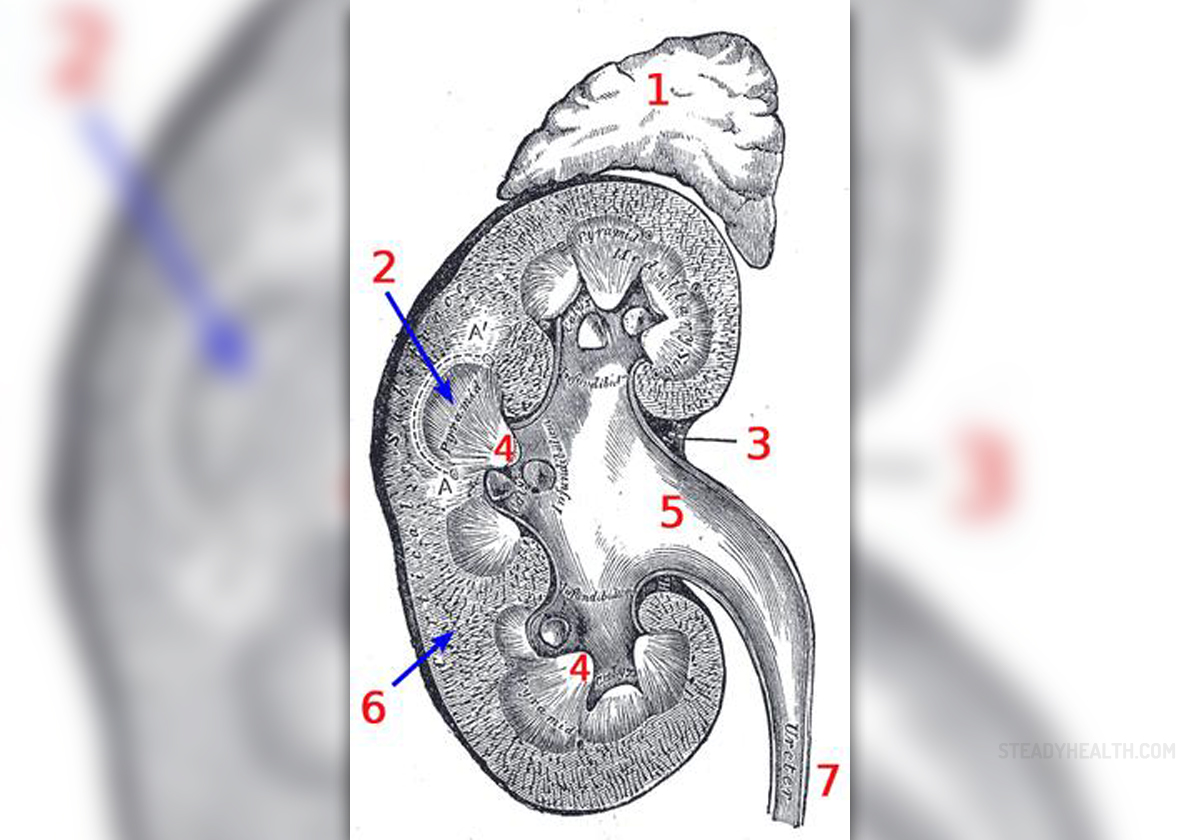
Pyelonephritis is inflammation of the kidney caused by invasion of bacteria originating from the lower urinary tract or other organs and organ systems in the body. Pyelonephritis starts as acute inflammation and may, especially if not treated properly, progress into chronic form of the disease.
Causes and Risk Factors of Pyelonephritis
There are two ways to develop pyelonephritis. The first one is by spread of the bacteria from other parts of the body which are infected. The infective agents in this case reach kidneys via the bloodstream. The second and more common way of developing pyelonephritis is by ascendant spread of infective agents which have already caused infection of lower portions of the urinary tract (cystitis, urethritis, prostatitis).
The infection that has first developed in lower urinary tract is more frequent among women because their urethra is shorter comparing to men and is located closer to the anus, a potential source of the infection.
Pyelonephritis also affects more children suffering from vesicoureteral reflux disease, people suffering from kidney stones as well as those whose urinary tract (particularly the ureter and the urethra) has been affected by strictures due to different conditions and some treatments.
Clinical Characteristics of Pyelonephritis
The infection initially leads to shaking chills and high fever. There may be also pain in joints and the flank area becomes very painful. All of the mentioned can point to the presence of kidney infection. In children sudden increase in body temperature may cause changes in mental status (confusion) and seizures which both may mask the infection which actually affects the kidneys.
Additionally, patients may complain about burning sensation while urinating, increased urge to urinate although there may not be urine in the bladder at all and severe pain which accompanies urination and can be also present all the time.
And finally, the very appearance of the urine may change so there can be blood in urine or it becomes darker. Some people also report clouding of the urine.
Treatment and Prevention of Pyelonephritis
Pyelonephritis is treated with antibiotics and the treatment must be aggressive enough in order to eradicate all the bacteria from the urinary tract. The urine may be sterile 48-72 hours after the onset of treatment but standard treatment must last 21 days.
Prevention of pyelonephritis include proper treatment of infections of the lower portion of the urinary tract. This way the infection will not reach the kidneys and cause their inflammation. Furthermore, children suffering from vesicoureteral reflux disease must be treated surgically. Only this way chronic pyelonephritis as well as more serious damage to the kidneys can be prevented.
And finally, it is essential to flush the bladder on daily bases with proper intake of water and other fluids.

















Your thoughts on this
Loading...